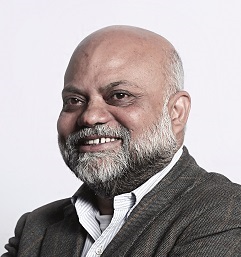Iqbal Quadir is a senior fellow at the Belfer Center for Science and International Affairs. Iqbal Quadir has been teaching at Harvard and MIT since 2001. After teaching at Harvard Kennedy School for four years, he transferred to MIT in 2005 where he founded and, for the next decade, directed the Legatum Center for Development and Entrepreneurship. As an MIT professor of practice, he taught and mentored about 200 entrepreneurial students. He returned to the Kennedy School in 2018 as a Senior Fellow. For more than 25 years, Quadir has been building and helping others build great businesses to serve and economically empower average citizens in low-income countries.
The companies you created or co-created serve more than 100 million people today. Quadir’s efforts reflect his philosophy that this approach is the best way to uplift these countries and contribute to world peace and prosperity. To promote this philosophy, he also co-founded and co-edited Innovations, an MIT press review focused on business solutions to global challenges that has been in business for 12 years. Quadir is credited with being the first to envision the potential of digital mobile phones to transform low-income countries. In 1993, he began a full-time quest to bring the power of these digital tools to everyone, including the poorest, the citizens of his native Bangladesh. He did so by synthesizing his observations that connectivity is essential for economic empowerment, that such empowerment translates into the ability to pay for a connectivity service, and that there would be a drastic drop in its cost. Using these concepts, he created a consortium of organizations and, in 1996, founded Grameenphone, the revolutionary mobile network operator. Today, Grameenphone has around 70 million subscribers and its network covers more than 99% of the population of Bangladesh.




